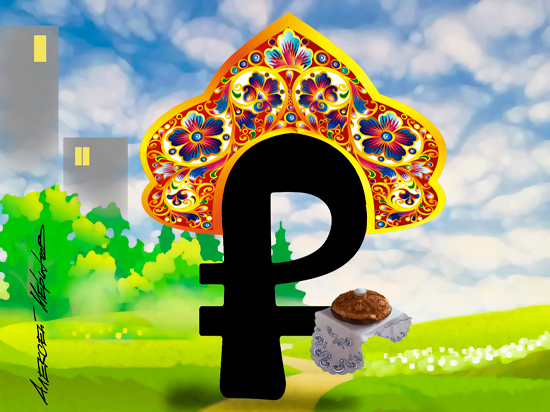Return of a non-resident: foreign investors were allowed to trade on the Russian stock exchange
[ad_1]

How this will affect the ruble exchange rate and stock prices, experts said
Mosbirzha – the largest trading platform in Russia – from August 15 allowed foreign clients, as well as non-residents from friendly countries, to make transactions on the bond market. And the deconversion process will also begin – the Bank of Russia will launch automatic conversion of depository receipts into shares of domestic companies. In general, after the drastic prohibitive measures that followed immediately after the start of the special operation, foreign investors are returning to the Russian stock exchange. Although those of them who represent “unfriendly” countries are still prohibited from entering the Moscow Exchange.
Mosbirzha suffered greatly from the events of the last six months. After the start of the special operation, the site suspended trading for almost a month, until March 23. But even after this date, foreigners did not get the opportunity to trade on the Russian stock market. The ban was introduced as one of the government’s measures in response to the sanctions announced by the West, the most severe of which was the freezing of half of the gold and foreign exchange reserves of the Bank of Russia. At that moment, all foreign investors fell under the hot hand. Then the authorities decided to change the approach and separate the “friendly” from the “unfriendly”. Today, there are 48 states on the list of unfriendly countries that have been ordered to enter the Moscow Exchange.
Experts refuse to predict when a full restoration of investor access will occur, since the Moscow Exchange is actually held hostage by geopolitics. However, from August 15, foreigners from friendly countries and companies whose ultimate beneficiaries are Russian citizens or companies will be able to trade in the bond market. “Given that when obtaining access to the bond market, non-resident clients will be identified, one should not expect strong changes in the market,” BitRiver financial analyst Vladislav Antonov predicts the consequences of such a step. At the beginning of July, the share of non-residents in the segment of federal loan bonds was 17.6%, which, according to the expert, is a fairly large share in the total volume.
“I do not expect any significant purchases from non-residents,” Georgy Vashchenko, deputy director of the analytical department of Freedom Finance Global, continues the conversation. “The bond market has always been less interesting to them than stocks.” The yield of Russian bonds is now inferior, for example, to similar securities of Kazakh issuers by 3-4% against the background of comparable dynamics of the ruble and tenge, so one should not expect interest in ruble bonds either, the analyst believes.
Passions on the Moscow Exchange may flare up in connection with another phenomenon: from August 15, “de-conversion” will begin. This is the name of the process that the Central Bank of the Russian Federation launches to convert depositary receipts, which are accounted for in Russian depositories, into shares. The procedure will take place in a short time and will allow holders of depository receipts to receive shares of Russian issuing companies that are not limited in circulation as soon as possible. And they will inevitably sell the received shares on the Moscow Exchange. And here a negative scenario is already possible, as investment banker Yevgeny Kogan suggests. Foreigners can start selling their shares. The total volume that they can sell is 152.3 billion rubles, which is 1.1% of the total capitalization of the issuing companies. And the average volume of trading in shares from the Moscow Exchange index after the resumption of trading in March is 35.5 billion rubles. “In each case, the maximum sales can be quite tangible,” Kogan believes. “But if non-residents decide to sell all the available volume at once, this may negatively affect the quotes.” As a result, the shares of the largest domestic companies in the IT, energy and banking sectors may be under attack (the risk of a decrease in share prices).
A separate question: how will access to trading by foreigners affect the ruble exchange rate? Most experts believe that if the ruble weakens, it will not be due to the influx of money from non-residents on the Moscow Exchange. “The dollar exchange rate will grow not because of the influx of foreign investments, but because of the budget’s need for ruble revenues from the oil and gas sector, despite the fact that the country sells less and less fuel abroad,” says Georgy, specialist in international financial markets at the Finmir marketplace. Svirin. “And everyone is already ready for the fact that the ruble will soon be devalued: it’s not just that it was actually fixed at 60 rubles per dollar all August.” Usually, after such a “plateau”, a sharp depreciation of the national currency follows, the expert warns.
[ad_2]
Source link






